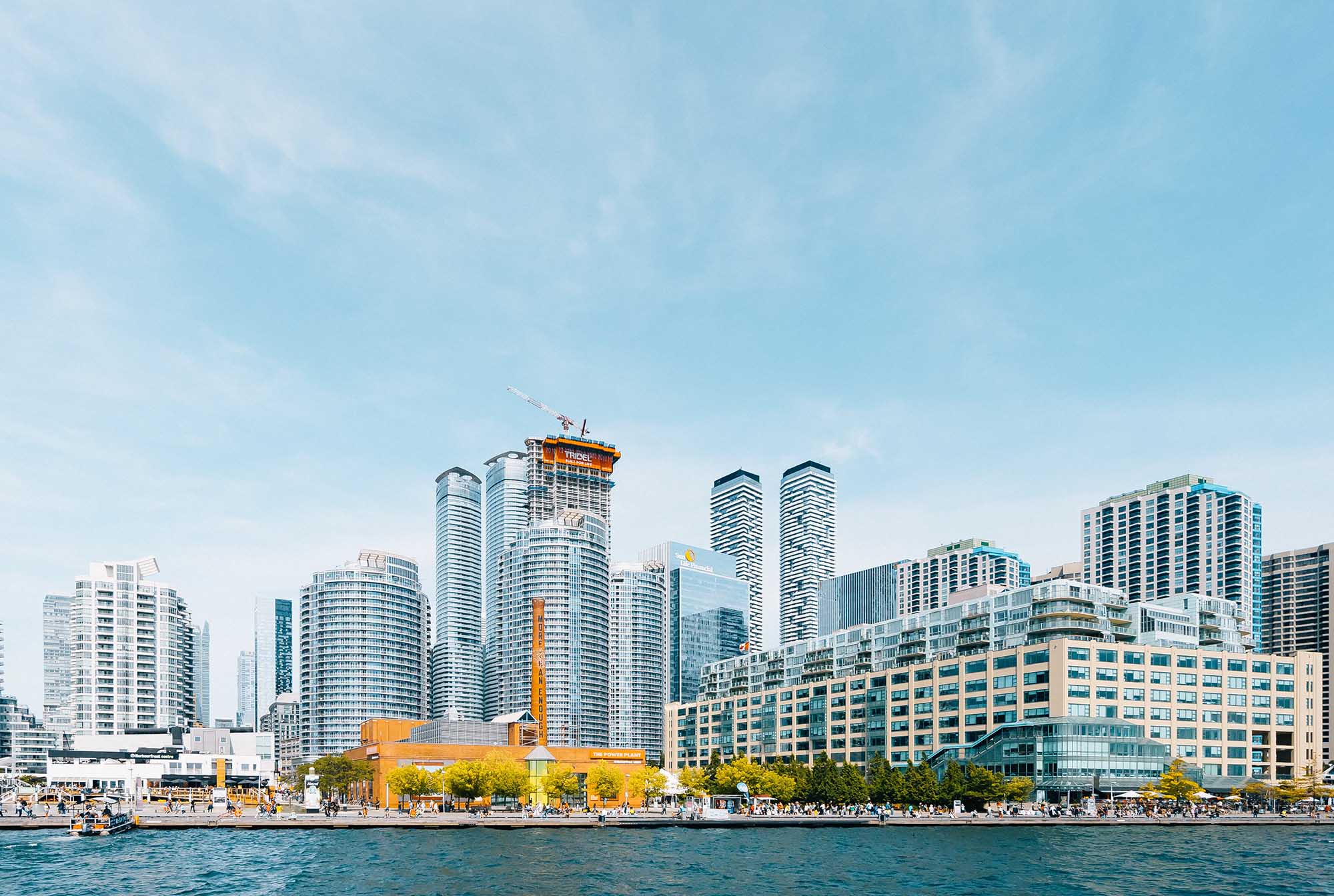

Close


Photo: Patrick Tomasso / Unsplash
Steadily climbing rental prices and increased immigration targets laid out by the federal government last year could lead to robust levels of housing demand in the Greater Toronto Area’s post-pandemic era. For investors who are planning ahead, these future market conditions offer possibilities for profitable real estate ventures, making now a potentially opportunistic time to purchase an investment condo.
When deciding to invest in condos, you can go the resale or the new construction route. Each option has its own advantages and drawbacks to weigh, but there are a couple of key differences between the two choices to consider.
Depending on your individual investment goals, a resale or a new construction condo — or even a portfolio mix of both types — may work best for your needs. Simon S. Mass, CEO of The Condo Store (TCS), helps us to break down the must-know differences between pre-construction and resale investing.
The most obvious difference between a resale and a pre-construction condo is that one already exists on the market, and the other is a yet-to-be-built property.
Resale condos are typically lived in over one or many cycles of ownership prior to purchase, and are available to the investor to use after closing on the purchase agreement within a matter of months. On the other hand, pre-construction properties are built brand new, but they don’t become tangible assets until years into the future. In the later stages of construction, the builder may allow you to take occupancy of the newly-constructed unit prior to closing during what is called the occupancy period, but you won’t own the condo until closing occurs later on.

Photo: James Bombales
When it comes to leasing out your investment condo, those who buy resale properties can base their prices on the current rental values in their market. Meanwhile, pre-construction properties require you to estimate your rental income off price forecasts. Until your unit is rentable, pre-construction condos can still make money by appreciating in value prior to the completion of the building, Mass says.
“The biggest issue that many novice investors forget with resale is that you do not get the incredibly important and significant return-on-investments on your small deposits during the approximately five years it takes for the condo to be built and delivered to you,” explains Mass.
“The benefits of zero responsibility needed to hold a mortgage and all the costs associated with owning an investment unit is really the icing on the cake,” he adds.
Unlike a resale property which is already finished and under ownership, pre-construction properties take years to build, and can be subject to delays. Mass says that he has had clients come to TCS with stories of condo cancellations and delayed timelines. He explains that the quality of new homes developers build tends to vary, but opting to work with a developer with a solid track record and industry clout is one way to ensure you can avoid these types of challenges.
“Construction delays are one thing that is common in the industry. In pre-construction, and as an investor in the space, the delays typically don’t impact your program or portfolio as it simply allows for more time to plan your strategy, more time before needing a mortgage, and also allows for more appreciation on the unit,” says Mass.

Photo: Harrison Fitts / Unsplash
When buying a resale property, you’ll typically execute the transaction through the representation of a licensed real estate agent who communicates with the home’s selling party. Placing an offer on a property usually allows for negotiation on multiple terms such as the price, chattels and fixtures, in addition to any purchase conditions on the offer, such as obtaining a professional property inspection.
If you’re buying a new construction property, however, there is no homeowner personally involved in the transaction — pre-construction condos are sold by the developer. In an industry that doesn’t require much negotiation or any bidding wars, Mass explains that buying new construction allows investors to avoid the process of visiting individual resale condos in person and conducting back-and-forth offers.
When you’re signing on the dotted line for your investment condo, you’ll have to wait for the closing date, which is the time when the purchase deal is finalized and the buyer takes ownership of the property. With a resale home, closing happens within a matter of weeks or months, but with new construction properties, the closing period is years down the road.
“Pre-construction allows you to have a very long period of time to plan and execute your ideal financial strategy on each property,” says Mass. “The basics of the process are the same, they just happen at a very reasonable pace and allow for the investor to plan and execute their program with very little stress.”

Photo: James Bombales
Mass points out that resale properties permit the investor to start collecting rental income right away, but require that the buyer obtain a mortgage from day one and have a full downpayment up front. Pre-construction deals, on the other hand, tend to require deposit installments over an extended time period.
While you would secure a mortgage pre-approval for your pre-construction unit during the purchase deal’s cooling-off period — when you can still withdraw from the deal and receive your deposit back after signing the contract — you won’t make a mortgage payment on the property until the final closing on the building happens. This is when construction is completed, the building is registered with the Land Registry Office and ownership is transferred to the investor.
Pre-construction units can also gain appreciation on a percentage of the property’s full value up until the closing date.
“A typical pre-construction deal will take three to five years from purchase to closing, and in that time, even with a conservative estimate on the appreciation per year, you’ve made a significant amount on your investment by the time you are closing on the unit,” explains Mass.
The common mantra of real estate is “location, location, location.” Whether you opt for a resale or pre-construction condo, location is still a vital factor to consider.
When buying a resale property, you can see the neighbourhood in its current state and what it offers in terms of transit, amenities, work opportunities and other features in real-time that are enticing to renters. Pre-sale condos can be located in new and up-and-coming communities, Mass explains, which provides value to investors, assuming that the project fundamentals like pricing and amenities are in check.

Photo: Scott Webb / Unsplash
Buying in an established location such as Yorkville, Mass says, may cause you to pay top dollar to access the neighbourhood, meaning your returns will be modest over the short and medium term. Built-up communities also tend to offer fewer new developments — while the location may be great, the opportunity to make sizable returns in that specific location might not be as fruitful. Hence, getting in on a new community before it becomes established and resale-oriented can be great for value.
“With respect to gentrification, you will be investing on the ground floor and the opportunity to be part of a turn-around story for a neighbourhood is exciting,” says Mass. “Plus, the returns will be exponentially greater.”




